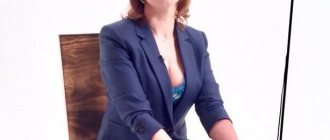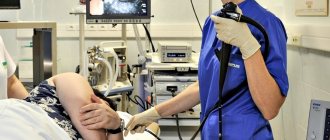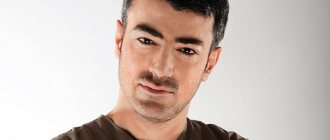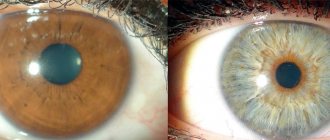One of the best world-famous plastic surgeons, professor, doctor of medical sciences Alexey Mikhailovich Borovikov works at the Institute of Plastic Surgery and Cosmetology. He is the author of world-famous publications on aesthetic and plastic surgery and microsurgery. Professor Borovikov's scientific works have been published in American specialized medical journals. Alexey Mikhailovich is one of their founders and a Full Member of the Russian Society of Reconstructive, Aesthetic and Plastic Surgeons, a lifelong member of the International Society of Aesthetic Plastic Surgery.
After graduating from the Second Moscow Medical Institute in 1975, A.M. Borovikov began his career as a surgeon. In 1977, he completed his clinical residency in surgery at the clinic of the Fourth Main Directorate of the USSR Ministry of Health. For a year and a half he worked at City Clinical Hospital No. 51 as a general surgeon.
From 1978 to 1991, Alexey Mikhailovich worked in the department of plastic microsurgery of the All-Union Scientific Center for Surgery of the USSR Academy of Medical Sciences. He went through a long career from junior to leading researcher. For the development of problems in reconstructive microsurgery of the extremities A.M. Borovikov was awarded the prestigious Lenin Komsomol Prize. In 1982, he defended his candidate's dissertation, and in 1992, his doctoral dissertation on current issues in reconstructive surgery.
From 1991 to 2001 A.M. Borovikov worked as deputy director of the Central Research Institute of Prosthetics and Prosthetics for scientific and clinical work. He directed a clinic with 300 beds, organized and developed plastic surgery at the institute. In 1995, having won a scholarship from the British Society of Plastic Surgeons in a competition, he completed a year-long internship in England.
A.M. Borovikov is the author of two hundred scientific works, including three monographs on plastic surgery of the breast. He supervised the work on seven candidate dissertations, which were successfully defended. Professor Borovikov is a member of the domestic and several international societies of aesthetic and plastic surgeons. Dr. Borovikov is a member of the editorial boards of a number of medical journals in this area.
Vladimir Vladimirovich, what do you like most about being a doctor?
First of all, I like working in our institution. In this regard, I would like to say a few words about each of the key areas of the clinic’s activities.
I'll start with diagnostics.
The Russian Scientific Center for Radiology and Surgical Technologies has a powerful and modern diagnostic base. In the entire country, in addition to our institution, such a concentration of diagnostic equipment is presented in only a few clinics.
In addition, it is a great joy and honor to work with specialists of the highest level who conduct diagnostic studies using modern protocols. We receive the most accurate and complete information, which makes it possible to offer patients the optimal amount of assistance in the shortest possible time. This applies to oncology patients and patients with other pathologies.
A lot of diagnostic procedures are performed for outpatients. Here we should focus on the positron emission tomography (PET) department. By the way, the very first PET studies of the whole body in Russia were carried out in the 1990s in this department, and, of course, it has the greatest experience in this field. It is also very important that 10 radiopharmaceuticals are routinely synthesized in our cyclotron-radiochemical complex, and today at the Russian Research Center for Chemical Technology named after Academician A.M. Granova uses the widest range of them in the country.
As for the treatment itself
, here I would also like to note several important points that characterize our institution from the best side.
The radiotherapy park consists of 6 linear accelerators, brachytherapy equipment and a gamma knife unit. The latter carries out up to 300 radiosurgery sessions per year; about 2-2.5 thousand patients are treated annually at linear accelerators. This is a very significant number, and the treatment protocols are the most modern.
The staff of radiotherapy specialists are true professionals. Most of them were trained within the walls of our institution. They know the specifics of the work and modern treatment protocols. Moreover, we apply a personalized approach to each patient. As a result, the relapse-free period, overall and long-term survival rates following our treatment are higher than the statistical average.
Moving on to talk about the surgical unit, I cannot help but note the fact that our institution has the greatest experience in performing orthotopic liver transplants in the region. To date, 246 transplantations have been performed with results that are comparable to the best European clinics.
The first transplant was performed at the Russian Scientific Center of Radiology and Surgical Technologies on June 14, 1998. The patient is still alive and has successfully undergone a number of other operations not related to the transplanted organ.
Other advanced developments in the field of surgery include the treatment of locally advanced tumors of the pancreas and liver. We are pioneers in the treatment of this pathology in the Russian Federation, and the results of medical care in this area are higher than in the general population.
The angiography department should be especially noted as the most experienced in the regional treatment of pancreatic and liver tumors. Since the 1990s, about one and a half thousand procedures are performed annually at our institution. The best specialists in Russia and the former Soviet Union who deal with similar treatment methods either work with us or - not always, but very often - are our students.
Finally, what always pleases and inspires is the work of the team as a whole. Of course, at the moment, in the context of the COVID-19 coronavirus pandemic, we are forced to reduce our work, but it continues, and we provide full assistance to patients with cancer.
Borovikov Alexey Mikhailovich
Professor Borovikov is included in the golden cohort of the best plastic surgeons in the world. He has several hundred publications, including in American journals on microsurgery, plastic and aesthetic surgery. Full member and one of the founders (in 1994) of the Russian Society of Plastic, Reconstructive and Aesthetic Surgeons (ROPRECH), life member of the International Society of Aesthetic Plastic Surgery (ISAPS).
Former President of the Association of Specialists in Aesthetic Medicine (OSEM), member of the International Confederation for Plastic Reconstructive and Aesthetic Surgeons (IPRAS), European Association for Genital Microsurgery (EAGM), World Society reconstructive microsurgery (World Society for Reconstructive Microsurgery - WSRM), American Society of Aesthetic Plastic Surgeons (ASAPS), Global Expert Service - Aesthetic Plastic Surgery - GESAPS).
Born into a family of employees, he studied in Moscow schools, in 1975 he graduated from the II Moscow Regional State Medical Institute named after. N.I. Pirogov and has been working as a surgeon ever since. In 1977, he completed his clinical residency in surgery at the Central Research Laboratory 4 clinic of the Main Directorate of the USSR Ministry of Health. For a year and a half he worked as a general surgeon at City Clinical Hospital No. 51.
From 1978 to 1991, from junior to leading researcher, he worked in the department of plastic microsurgery of the All-Union Scientific Center for Surgery of the USSR Academy of Medical Sciences. In 1985, as part of a group of young scientists, he was awarded the Lenin Komsomol Prize for developing problems in reconstructive microsurgery of the extremities. He defended his candidate's (1982) and doctor's (1992) dissertations there on the issues of reconstructive surgery.
From 1991 to 2001 worked as deputy director for scientific and clinical work at the Central Research Institute of Prosthetics and Prosthetics. The content of the activity was the management of the clinic (300 beds), the formation and development of the direction of plastic surgery at the institute. In 1995, he completed a year-long internship in the UK, winning a scholarship from the British Society of Plastic Surgeons.
Professor Borovikov A.M. has more than 200 scientific papers, including 3 monographs on breast plastic surgery. Under his leadership, 7 candidate's theses were defended. Member of national and several international societies for plastic and aesthetic surgery. Member of the editorial boards of a number of journals in this area.
Alexey Borovikov. How a blind lawyer from Chelyabinsk fights for an accessible environment
Guests
Alexey Borovikov lawyer, public figure
We continue to talk about the participants in the “Active People” competition. And our next hero is Alexey Borovikov, a blind guy from Chelyabinsk. We paid attention to him because, as a blind person, he has a very rare profession - he is a lawyer. How does he cope with this? Let's find out right now by contacting him via Skype.
Alexey Borovikov (via Skype):
Hello, hello, Moscow! Chelyabinsk is in touch.
Ilya Tarasov:
When I read the information about you, I was completely confused. It says: public figure, lawyer, poet, deputy, someone else. Is this really all true? Do you have time for everything?
Alexey Borovikov:
So, to keep up, you really need to work 48 hours a day. This is true, this is real.
Ilya Tarasov:
Let me explain for our viewers. You can't see practically anything, right?
Alexey Borovikov:
Yes.
Ilya Tarasov:
And your wife is filming you. She's also blind, right?
Alexey Borovikov:
Yes.
Ilya Tarasov:
In what way are you a lawyer? Are you a lawyer? What specialization?
Alexey Borovikov:
Civil law, I specialize in protecting consumer rights, I provide written advice on credit disputes, alimony workers, that kind of thing, family law, civil law.
Ilya Tarasov:
And when your clients find out that you have vision problems, how do they react?
Alexey Borovikov:
They treat it calmly, that is, there is no discrimination. They see when a person works, when a person prepares some documents. And here it doesn’t matter whether you have vision or not. The main thing is a quality result.
Ilya Tarasov:
Tell me, please, when did you lose your sight?
Alexey Borovikov:
This is congenital atrophy of the optic nerve. Until the age of seven he could distinguish colors, but the disease is designed and develops in such a way that over time his vision “goes down” to almost zero.
Ilya Tarasov:
Intelligence reported that you are not only a lawyer, but also a public figure. You even had your own non-profit organization, in my opinion, or even have one now. Correct me.
Alexey Borovikov:
There is an autonomous non-profit organization with such a big name - “Center for the Implementation and Development of Inclusive Technologies”. We created it in 2022. Now we have won a presidential grant.
Ilya Tarasov:
For what?
Alexey Borovikov:
In our organization we are developing projects that are aimed at teaching staff and government agencies. In this case, we will train teachers of higher educational institutions in the Kurgan, Chelyabinsk and Tyumen regions on how to interact with people with disabilities. How to overcome psychological barriers is the most difficult task.
Ilya Tarasov:
Do you have any barriers?
Alexey Borovikov:
Now, probably not. Were there any barriers? Almost every blind person, as far as I know, has certain complexes - for example, the cane complex. We haven't picked up a cane for a long time. But the complexes end when you fall very seriously. I was lucky - I fell into the ditch a couple of times without getting a single scratch. Well, apparently, this fall prompted the right thoughts.
It was difficult to get used to the fact (well, then the rose-colored glasses fall off, though after two or three years) that everything that is written in the law must be there. In theory, this is true. And when you take off your rose-colored glasses and go out into practice, when you go out into the street and realize that, in fact, there are no fences, no curbs in most cities...
I travel around the country a lot, and not all cities can be called comfortable. Just yesterday there was a large and developed city in Yekaterinburg. To my taste, this is the best infrastructure in the Ural District. Only Tyumen can compare with it. In Chelyabinsk, an accessible environment exists in some places, as in most regions, but the city, of course, is not suitable for the masses. The center is adapted - at the very least, but you can move around comfortably. Again about wheelchair users - I can say that the city is practically not suitable for them at all.
See also How volunteer doctors perform free surgeries for children with maxillofacial defects
Ilya Tarasov:
What do you want to change around?
Alexey Borovikov:
To change the service. You need to go and see how it is in other regions, and try to convey it to your subject.
Ilya Tarasov:
What specifically have you changed in Chelyabinsk?
Alexey Borovikov:
It was possible to raise the question of making barriers to prevent people from falling onto the roadway. They promised to include this in the work plan.
Ilya Tarasov:
No one will do this except you. That is, if you want to do it well, do it yourself. Right?
Alexey Borovikov:
Yes. And not because government agencies, as they are often accused of inaction, not because they are all lazy, but they do not know how to do it.
Ilya Tarasov:
Tell me, please, do you like the word “blind”?
Alexey Borovikov:
Good question. It happens that you are walking down the street and they say: “Oh, a blind man is coming!” It feels like...
Ilya Tarasov:
Does it feel like you're deaf?
Alexey Borovikov:
Yes, it feels like a lobster was caught in the Russian stream, that’s the same reaction.
When a grandmother walks with her grandson, for example (yesterday or the day before yesterday there was an incident, these days), she says: “Look, a guy with a stick.” I hear her explain: “If you see him on the street, you need to help.” The more people talk about it, the better. Again, if you help, you need to ask whether the person needs help.
Yesterday I had a very interesting case at my training in Yekaterinburg. I think this will be one of the hit cases. I’m standing at a bus stop, a man comes up and asks: “Let me have a smoke.” I say: “I don’t smoke.” Left. And I'm standing with a cane. He returns, then leaves. I walked and walked... “Are you really blind?” I say: “Well, yes.” Brilliant further development of events! He says, "Look at me." I look. He says: “Really blind! Why didn’t you say it right away?” Well, yes, of course, I ride around cities with great joy with a cane.
And then the bus comes. And he is one of those, as Zadornov would say, “bro-like.” This is a purely Ural guy, to be more politically correct. And this particular guy starts trying to clear the entrance to the bus. That is, he comes up to the bus and says: “Stop! Disperse! A man needs to go through!” - yells at the whole bus. He sincerely wants to help. In his understanding, it is necessary to push everyone aside: “Make way!” But this does not mean that he somehow treats the blind man badly. He's really sincere.
Ilya Tarasov:
What should you do in such a situation?
Alexey Borovikov:
Well, first of all, you need to approach the blind person himself and ask: “Do you need help?” And if so, which one?
Ilya Tarasov:
If you could have any three wishes, which ones would you make? Three.
Alexey Borovikov:
Well, the first wish is that everything that happens remains as it is. As one colleague told me: “If everything is as it is written in the Constitution, you will be left without a job.”
The second wish: that people in our country gradually begin to treat disabled people not as a lobster from the Russian stream, but as the same person. This is probably the very thing that many people with disabilities dream about.
And the third wish: to live exactly the same life again. It’s great to bring benefit to others.
Ilya Tarasov:
Listen, thank you very much for your answers, for your position in life. Why was there no desire to just see?
Alexey Borovikov:
There is a film by Yuri Grymov “To the touch”. There, a blind person becomes sighted for some time - and the entire world around him, his perception, becomes incomprehensible to him.
If someone watches the broadcast from those who have a medical, biological education, or teachers, they know very well that when one function is lost, another develops. A person receives 80% of information through vision. But when this function is absent, other senses become more acute and hearing becomes more acute.
That is, if a person suddenly begins to see, I don’t think that he will be able to rationally use this tool for a simple reason: when you haven’t used some tool for 20 years, it’s unlikely to be effective right away. This is how the brain is structured, this is how our physiology is structured. That is, you can learn to work with a hammer, but rebuilding the physiology of the body is quite difficult.
Ilya Tarasov:
So you just don't need it?
Alexey Borovikov:
Yes. On the other hand, if you suddenly start to see, will life in the mode in which it is now be so interesting?
Ilya Tarasov:
You are a happy person. I wish you success in all your endeavors. Everything will be cool!
Alexey Borovikov:
Happily!





